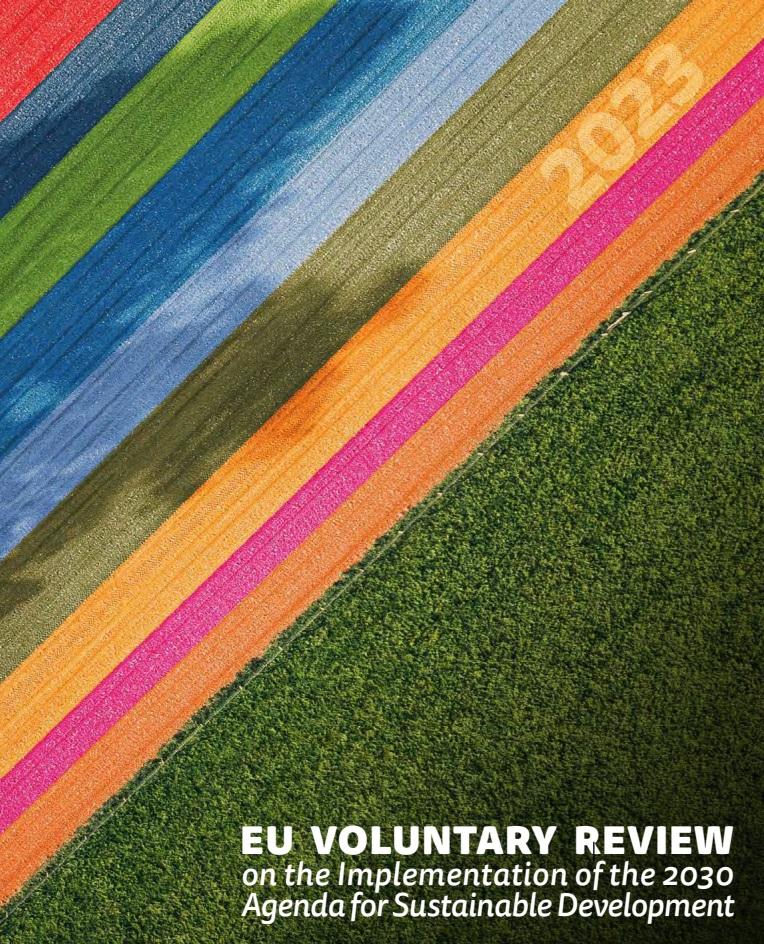
The EU Voluntary Review on the Implementation of the Agenda 2030 highlights the Global Network of Regional Sustainable Energy Centres (GN-SEC) as best practice example for EU supported programs under the external dimension of the Global Gateway Strategy.
The document includes: "Actions by the EU and its Member States are mutually reinforcing and coordinated to ensure complementarity and impact in support of the SDGs. In addition to acting together with the EU through joint programming and Team Europe Initiatives, Member States carry out their own projects in support of the 2030 Agenda, including SDG 7, such as the following illustrative initiative. Austria contributes to UNIDO’s Global Network of Regional Sustainable Energy Centres (GN-SEC) platform and the regional Centres for Renewable Energy & Energy Efficiency (Caribbean, Pacific, ECOWAS and Central American Integration System)."
The EU report is a key input to the United Nations High Level Political Forum, scheduled to take place from 10 to 20 July 2023 in New York. The HLPF in 2023, without prejudice to the integrated, indivisible and interlinked nature of the SDGs, will also review in-depth Goals 6 on clean water and sanitation, 7 on affordable and clean energy, 9 on industry, innovation and infrastructure, 11 on sustainable cities and communities, and 17 on partnerships for the Goals. The conference will inform the United Nations SDG Summit to be held in September in New York.
In the review, the European Union (EU) reaffirms its commitment to the full and timely implementation of the 2030 Agenda, through its internal and external action, as a shared global roadmap. Building on the concept of ‘whole-of-government’, the EU implements the 2030 Agenda in an integrated approach which places the Sustainable Development Goals (SDGs) at the core of EU policy. All EU actions and policies contribute to the implementation of the SDGs. The EU aims at a high standard of ambition through deeply transformative policies and strategies, such as the European Green Deal, which are inherently linked to the pursuit of the SDGs and promoting global transformation to a sustainable and peaceful world.
Progress towards the SDGs at global level has proven insufficient so far – a challenging trend confirmed by the latest UNSG’s Report on the SDGs. The achievement of the SDGs has been hindered by the impacts of the COVID-19 pandemic, conflicts, growing inequalities, climate change and increasing levels of environmental degradation and the impacts of recent violent conflicts. The EU’s response to the various ongoing crises is based on, and aims to support, the implementation framework of the SDGs. While the EU has made progress across a large majority of the SDGs since adoption of the Agenda, this has not always been even. More progress is needed in the EU on many SDGs, in particular on those related to the protection and sustainable use of natural resources.
